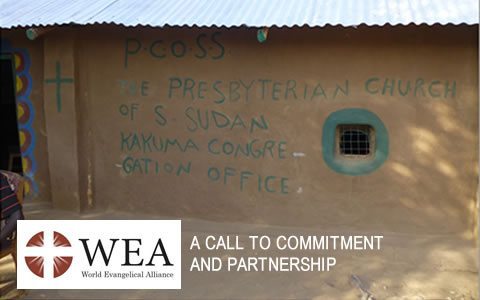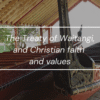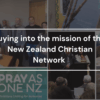New York, NY – August 19, 2015
The World Evangelical Alliance (WEA) in collaboration with several of its global partners participated in the preparation for the United Nations’ (UN) World Humanitarian Summit (WHS) by submitting a comprehensive paper on ‘the unique and essential role of the evangelical community in humanitarian response and development.’
Titled ‘A Call to Commitment and Partnership – A World Evangelical Alliance Brief on the Evangelical Community and Humanitarian Development’, it explains who evangelicals are, why they engage in humanitarian work, and how they work: from the global level of associations, networks and international Non-Government Organizations (NGOs) to the grassroots level of local churches.
“We welcome the opportunity that the World Humanitarian Summit provides to faith-based organizations to participate in a meaningful conversation on how to better respond to the ever increasing humanitarian needs around the world,” said Bp Efraim Tendero, Secretary General of the WEA.
“Representing a diverse constituency of some 600 million evangelicals in 129 countries, the WEA’s paper reflects both, our wide experience of serving those in need and our ethos of intentionally and consistently living out our faith in unconditional service.”
Research has long shown that people and communities turn to faith in times of humanitarian crises to make meaning and find hope, the report says, adding that new studies have also begun to bring light to the important role faith-based organizations provide in humanitarian contexts. This role is based upon a theology of Christian faith that models itself on the unconditional love of Jesus Christ, who calls us to love our neighbor. In the humanitarian context, love is expressed through timely, lifesaving action in service to all in need without discrimination.
The evangelical community is committed to participating as an active partner in humanitarian response and development, recognizing that in a diverse world we will act alongside other faith and non-faith groups, and do so with respect and humility.
The paper that was prepared in collaboration with Micah Global, the Humanitarian Disaster Institute of Wheaton College, Food for the Hungry, and Tearfund UK, also calls on the UN to improve the acceptance/understanding among the international community of the unique value of faith based organizations, and thereby more deeply engage the faith communities in humanitarian and development response.
It features contemporary and historical illustrations of how evangelical organizations, churches and individuals have responded to calamities, such as the Ebola crisis in West Africa or the floods in Mozambique. But it also addresses ‘misperceptions and proper criticisms of the evangelical community around gender discrimination and proselytizing,’ calling upon the evangelical community to ‘work together toward addressing these issues.’
“As we worked on this paper and gathered the insights from participants around the table, we were reminded again of our call to serve a suffering world in the name of Christ. The paper can be read as a devotional, a call, a challenge to respond to those in need,” said Commissioner Christine MacMillan, WEA’s Director of Public Engagement and one of the authors of the paper. “As WEA, we encourage churches, Christian organizations, and individuals to use this paper for reflection on our ethos and our values as we seek to live out our faith in God’s so loved world.”
For more information on the World Humanitarian Summit, visit: Worldhumanitariansummit.org
To download the paper, click here.









0 Comments